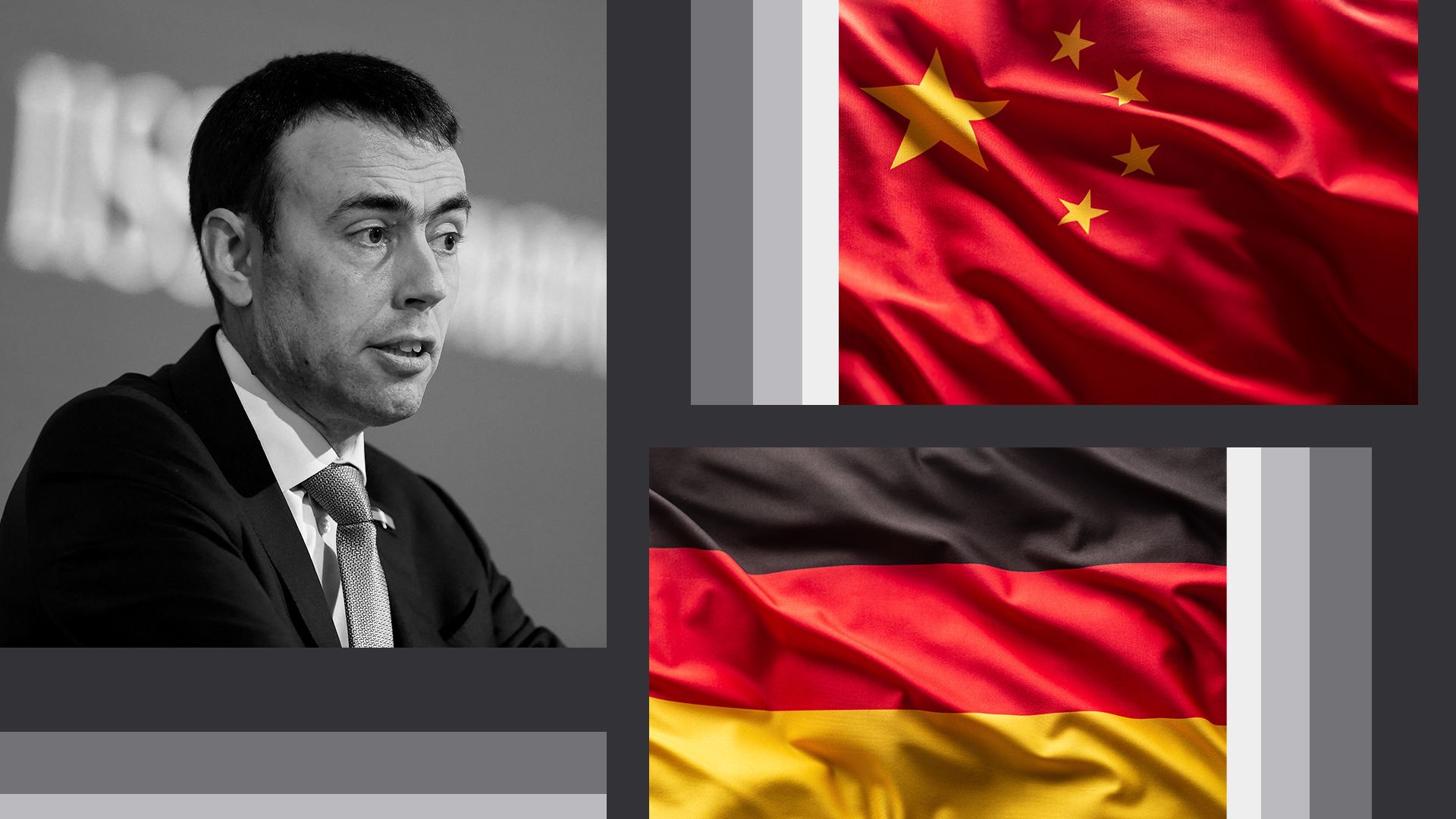German official: Berlin "must give up its bilateral approach toward China"
Add Axios as your preferred source to
see more of our stories on Google.

Photo illustration: Annelise Capossela/Axios. Photo: Mazen Mahdi/AFP via Getty Images
A top German lawmaker representing Chancellor Olaf Scholz's party says the Chinese government's coercion of Lithuania has underscored the need to abandon Germany's bilateral approach to Beijing in favor of a unified European position.
Why it matters: China has been Germany's largest economic partner since 2015. As broader European attitudes toward Beijing have soured over its human rights abuses and unfair trade practices, Germany has faced calls to rethink the pro-engagement policies favored by former Chancellor Angela Merkel.
Driving the news: Nils Schmid, the foreign-policy spokesman for the Social Democratic Party, spoke to Axios ahead of Scholz's meeting with President Biden on Monday, where U.S.-German coordination on China was one of several topics on the agenda.
- Schmid had just returned from leading a cross-party delegation to Lithuania intended to "show solidarity" in the face of Beijing's pressure campaign, which escalated after the Baltic nation allowed Taiwan to open a trade office in Vilnius using its own name, rather than "Chinese Taipei."
- The European Union launched legal action against China at the World Trade Organization last month, accusing Beijing of quietly barring all imports of Lithuanian goods and pressuring European companies to cut Lithuania out of their supply chains.
What they're saying: Schmid, noting how uncharacteristically swift the EU's lawsuit was, told Axios "it is vital to defend the integrity of the EU single market" and "stand up for smaller member states when they are bullied around by China."
- "The EU is not always in all aspects a superpower, but when it comes to trade and the economy, it is a superpower. It's a regulatory superpower," he said.
- In addition to the WTO complaint, Schmid pointed to the EU's development of an anti-coercion tool that will allow the bloc to push back against economic intimidation from China and other countries.
The big picture: Schmid said that nobody in Europe talks seriously about "decoupling" with China, given the extent to which the EU and Chinese economies are "intertwined."
- The previous German government had pushed aggressively for a landmark EU investment agreement with China, but ratification was frozen after Beijing sanctioned European lawmakers over their criticism of its human rights abuses.
- Schmid said the agreement had "shortcomings" related to forced labor and will never be ratified as long as the sanctions remain, but added: "The Scholz government is still, in principle, in favor of an agreement with China, as probably all European governments are."
- He also cautioned European businesses against assuming that the Chinese market will continue to be as valuable to foreign investors as it has been over the past several decades, and said other Indo-Pacific and African countries could present better opportunities as the mood toward China continues to shift.
